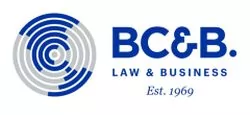Nowadays, professional sports such as American Football, Soccer, and Basketball, among others, are industries that generate million-dollar profits through the teams that conform their corresponding professional leagues. At these times of globalization, where thousands of specialized sport media broadcast sport events – radio and TV networks, press, internet, etc. – there are frontiers no more. These sports are recognized and followed all over the world.
As an outcome of this internationalization the teams and leagues of professional sports need to protect their intangible assets worldwide. This is where Intellectual Property (IP) becomes an essential subject.
How to protect these assets?
IP plays a crucial role in the management, promotion and generation of value of pro international teams in the ambit of sports. It is through intangible assets like the image of the athletes, the name of the teams, what their logos represent, that, for instance, T-shirts and memorabilia, which make use of them, generate profits of billions of dollars per year to the industry. The profits depend on the worldwide protection of these intangible assets through different categories of Intellectual Property.
An example of how these categories are applied in sports is registered trademarks. These protect the name of the team, the logo, the slogan or slogans, as well as any other visual elements which make the team distinct from any other. Other interesting examples are an athlete's images - the photographs that are taken during the games, as well as the ones taken with promotional purposes -, the videos that are generated when matches are recorded and that then are transmitted - the selling or licensing of their broadcasting rights – also generate million-dollar profits.
In order to protect these significant profits, the most valuable assets of these teams and leagues should be protected through IP.
Panorama
Professional sport teams in Europe, USA and Mexico, for instance, generally receive their major incomes from licensing the broadcasting rights of their matches. However, the income distribution schemes differ from one system to another.
In the NFL, for example, the owner of the assets is the league or association instead of the team. In contrast, the teams are the owners of these profits in the Mexican soccer league.
Under the NFL scheme, a central office negotiates and licenses the IP assets of one or more of the affiliated teams without needing their consent. In the Mexican soccer league, each team is free to negotiate its IP assets, and generally, it does not need the previous consent from the Mexican Football Federation.
Conclusion
The globalization and distribution of sports generates the need to protect the IP values of a team or league worldwide. It is of utmost importance that these organisms, choose the adequate IP resource to use when protecting these million-dollar valued assets. Therefrom, it is always recommendable that these organisms get advice from an IP professional. This also applies to any individual who wishes to obtain a license of a trademark or any copyrights from a professional sport association or from a professional sport team in order to gain profits from it.
The content of this article is intended to provide a general guide to the subject matter. Specialist advice should be sought about your specific circumstances.

